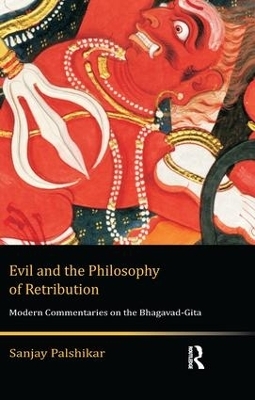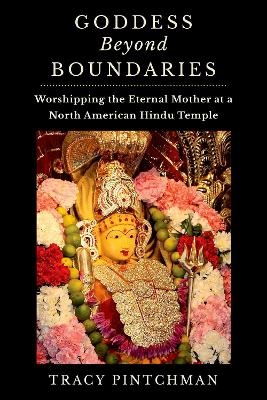
Evil and the Philosophy of Retribution
Modern Commentaries on the Bhagavad-Gita
Seiten
2016
Routledge India (Verlag)
978-1-138-66016-8 (ISBN)
Routledge India (Verlag)
978-1-138-66016-8 (ISBN)
This book examines the concept of ‘evil’ and the responses to it through modern interpretations of the Bhagavad-Gita by Tilak, Gandhi and Sri Aurobindo. Using sources as diverse as puranic stories, medieval inscriptions and Gita-commentaries across centuries, it draws attention to the intriguing nexus between the attribution of evil and justification of violence.
What is ‘evil’? What are the ways of overcoming this destructive and morally recalcitrant phenomenon? To what extent is the use of punitive violence tenable? Evil and the Philosophy of Retribution compares the responses of three modern Indian commentators on the Bhagavad-Gita — Aurobindo Ghose, Bal Gangadhar Tilak and Mahatma Gandhi. The book reveals that some of the central themes in the Bhagavad-Gita were transformed by these intellectuals into categories of modern socio-political thought by reclaiming them from pre-modern debates on ritual and renunciation.
Based on canonical texts, this work presents a fascinating account of how the relationship between ‘good’, ‘evil’ and retribution is construed against the backdrop of militant nationalism and the development of modern Hinduism. Amid competing constructions of Indian tradition as well as contemporary concerns, it traces the emerging representations of modern Hindu self-consciousness under colonialism, and its very understanding of evil surrounding a textual ethos.
Replete with Sanskrit, English, Marathi, and Gujarati sources, this will especially interest scholars of modern Indian history, philosophy, political science, history of religion, and those interested in the Bhagavad-Gita.
What is ‘evil’? What are the ways of overcoming this destructive and morally recalcitrant phenomenon? To what extent is the use of punitive violence tenable? Evil and the Philosophy of Retribution compares the responses of three modern Indian commentators on the Bhagavad-Gita — Aurobindo Ghose, Bal Gangadhar Tilak and Mahatma Gandhi. The book reveals that some of the central themes in the Bhagavad-Gita were transformed by these intellectuals into categories of modern socio-political thought by reclaiming them from pre-modern debates on ritual and renunciation.
Based on canonical texts, this work presents a fascinating account of how the relationship between ‘good’, ‘evil’ and retribution is construed against the backdrop of militant nationalism and the development of modern Hinduism. Amid competing constructions of Indian tradition as well as contemporary concerns, it traces the emerging representations of modern Hindu self-consciousness under colonialism, and its very understanding of evil surrounding a textual ethos.
Replete with Sanskrit, English, Marathi, and Gujarati sources, this will especially interest scholars of modern Indian history, philosophy, political science, history of religion, and those interested in the Bhagavad-Gita.
Sanjay Palshikar is Professor at the Department of Political Science, University of Hyderabad.
1. The Return of the Gita and the Rise of Hinduism 2. Demons and Demonisation 3. Sri Aurobindo: The Bow of the Kshatriya 4. Lokamanya Tilak: Hatvaapi… na hanti 5. Gandhi: The Penance of Self-effacement. Bibliography. About the Author. Index
| Erscheinungsdatum | 24.01.2016 |
|---|---|
| Verlagsort | London |
| Sprache | englisch |
| Maße | 138 x 216 mm |
| Gewicht | 453 g |
| Themenwelt | Geisteswissenschaften ► Geschichte |
| Geisteswissenschaften ► Philosophie | |
| Geisteswissenschaften ► Religion / Theologie ► Hinduismus | |
| Sozialwissenschaften ► Politik / Verwaltung ► Politische Theorie | |
| ISBN-10 | 1-138-66016-7 / 1138660167 |
| ISBN-13 | 978-1-138-66016-8 / 9781138660168 |
| Zustand | Neuware |
| Haben Sie eine Frage zum Produkt? |
Mehr entdecken
aus dem Bereich
aus dem Bereich
Worshipping the Eternal Mother at a North American Hindu Temple
Buch | Hardcover (2024)
Oxford University Press Inc (Verlag)
CHF 136,00


